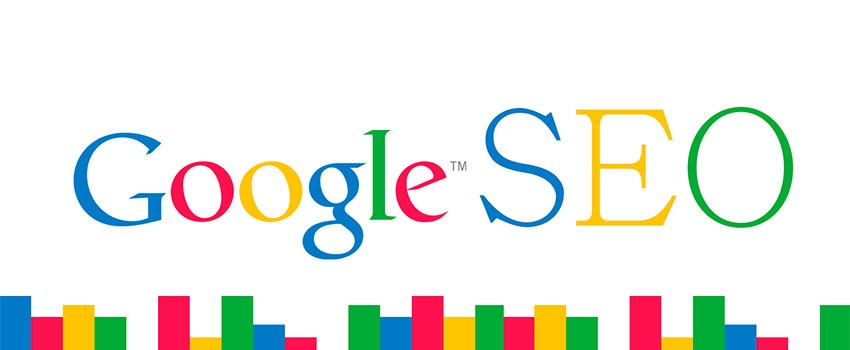6 Common Mistakes That Hurt Website Ranking
To have your website rank at the top of search engines and generate substantial traffic to grow your business are two major objectives of website owners. They take a lot of hard work to achieve, But there are cases where your website faces ranking difficulties despite the efforts you put in. In this post, we examine the top reasons we have identified to be attributable to ranking difficulties.
Understanding SEO
Search Engine Optimization or SEO is simply the set of actions you take to boost your website presence in the search engines. Usually, the key search engine in focus is Google giving that Google continues to dominate the search market. According to Statistica, Google controls 91 percent of search traffic as at January 2024. So, essentially, your SEO efforts will be focusing more on how to rank better in the Google search engine.
Major SEO Considerations
There are two broad types of SEO namely on-page SEO and off-page SEO.
On-page SEO represent the actions that are within the control of the website owner such as page speed optimization, content development, internal linking, keyword optimization, website title and description, and all other other efforts within your control that can boost your page or website ranking.
You can read more about on-page optimization in this article: 27 On-Page SEO Checklist For Top Search Engine Performance
Off-page SEO represent the factors that are not within the control of the website owner and are largely determined by external influences. An example is link building.
You can read more about off-page SEE in this article titled: Basic SEO Principles For Beginners. You can also learn about link building in this article: Link Building Strategies That Boost Search Engine Ranking.
Why SEO is Important
Search engine Optimization is important and should be taken very seriously for several reasons. We will share just few key reasons why you should try to optimize your web pages for search and why this task should be taken seriously.
The Internet is Competitive
According a report published in April 2024 by Forbes, there are 1.09 billion websites in the world. The same report says a website is published every three seconds. All these represent the competition that exist in the world of the internet.
Another report by Backlinko suggests that the top ten positions in Google search account for over 80 percent of clickthrough rates. The number one position gets as much as 27.6 percent and the second position gets 15.8 percent of clickthrough rates. That means the top two positions in Google search account for about 40 percent of clickthrough rates.
Search Ranking and Profitability are Related
Flowing from the above, it is clear that the higher a website ranks, the more likely it is to grow its sales and profits. Increasing your web presence by ranking high at the top of the search engines can significantly boost your business growth objectives, sales and profits. According to higher visibility, organic search drives 1000 percent more traffic than organic social. The conclusion is that businesses that rank at the top of search engines are more likely to experience growth and sustainability than those not ranking on the top positions.
Common Mistakes That Hurt Search Ranking
During the early days of SEO, the search algorithm itself was not so sensitive to sharp and unethical practices. The content management systems were also not so developmed to address most of Google’s requirements. All that have changed today. But you can still find tons of cases where well written content fail to rank in the search engines. In most cases, there are errors that preventing the page from gaining in ranks.
We will in this post examine six common reasons that hurt website ranking. These apply to newly published content and existing content. Let’s delve into them.
1. You are Neglecting On-Page SEO.
On-page SEO is one critical aspect of your optimization you need to take seriously and it will pay off. Here are some aspects you should improve.
Content
Content is king and that is the truth. Content for search engines is like food to the human body. Once a website does not have quality content, it becomes unattractive to search engines and gradually fades off just like the human person will dislike a bad food. Search engines love content that convey expertise, experience, authoritativeness and trust.
We have covered Google’s definition of E.E.A.T in the article: Google’s New Content Guidelines And AI Generated Content and will recommend that you take some time to read it.
Page Speed
Although page speed is an on-page SEO element, it is an important ranking factor and we have covered it in 5 below.
Mobile Usability
More traffic now come from mobile devices and Google had long noted this and placed a lot of importance to mobile friendliness in website ranking. Today, most commonly used applications like WordPress are mobile friendly and theme developers also consider this key element in theme development. The key takeaway is that you must ensure that your website performs excellently for mobile usability.
Internal Linking
Internal linking help users learn more about any subject matter under discussion and can improve user experience. Google considers internal linking in ranking a website and so you must do it right to enhance its usefulness to the user. Avoid plain links pasted on your page and instead, use anchor texts to guide users to your linked page.
Here is a full article on best practices you need to know: Best Content Strategies To Improve SEO And Website Ranking.
Page Title
Website title is one of the most important SEO elements you need to take very seriously and implement optimally. Titles are important because it is a ranking factor used by Google, it appears in the Google search results so it has some impact on user impression for your website and business and because it is visible to searchers, it impacts clickthrough rate. We have published a full article on 11 Most Important SEO Metrics For Google Ranking and recommend it for you.
Image Alternate Text
Google understand images from the alternate text and description. So you will need to use words that help Google know what your images represent and how to categorize and rank them
Page URLs
Use clean short URLs. It is generally acknowledged within the SEO world that the shorter a URL, the better. We have done a detailed post on URL structuring and you can learn more there: Useful URL Structuring Tips That Will Help Higher Ranking.
2. You are Attempting to Manipulate the Search Algorithm
All forms of smart moves to gain some advantage in the search engines are considered to manipulation. These can take the form of keyword stuffing, link purchase, link exchanges, comment spam and others. You can read more on search engine manipulation in this article: Search Engine Manipulation: Why Google Frowns At It
We will also recommend that you read about these Popular SEO Tactics That Have Become Obsolete.
After reading the recommended articles, you will find that what matters most to search engines is helpful content and not just smart moves to gain SEO scores. Google is very concerned about how users respond to website content and will look for signals that suggest that users gain satisfaction from reading a content. You will therefore need to pay attention to signals like bounce rate and user experience signals which can help you understand if your content is loved by users.
Also read: Deliberate Link Building Can Be Offensive To Google
3. You are Neglecting Website Errors
Errors are a normal part of websites but when they become really obstructive and disrupt the flow of communication, they become a downside and hurt user experience. As much as possible, you need to address all known errors in order to enhance effective user experience. So, the fewer the errors, the better for your website. Where you are able to identify and eliminate errors from your website, please do.
Also read: Best Practices For Managing 404 Error Pages
4. You are not Paying Attention to Website Structure
Fortunately, most modern content management systems and even html developers have addresses this issue in theme frameworks. One aspect you should take seriously is the navigational elements and the ease of assessing your internal links from every page where you are. To acheieve this, you need to effectively use drop dowmn navigation effectively.
5. Your Website Speed is Not Good for User Experience
Page speed is a very important on-page SEO element. It is a ranking factor and can seriously affect user experience. When a web page is slow to load, it gets people frustrated and they leave. According to Webfx, 40 percent of visitors are lost when a website takes longer than 3 seconds to load.
Here is a detailed post on practical Guide To Page Speed Improvement. The key recommendations for page speed improvement will include:
- Compress your files
- Remove unused code
- Reduce redirects
- Leverage browser caching
- Use a CDN (content distribution network)
- Optimize images
- Use website themes that are well optimized for speed.
6. You are Building Links Aggressively
Google has stated that links are not as important or weighty as they used to be. Obviously, this search ranking factor has been abused and Google perfectly understand that. You can read more about that in this article: Deliberate Link Building Can Be Offensive To Google
We have also put together some SEO factors that are no longer useful in this post: Popular SEO Tactics That Have Become Obsolete.
Final Words
The SEO world is changing and lots of tactics which paid off before are no longer yielding any good results. The best way to stay on top today is to publish useful content, upgrade existing content to become better and improve on user experience.
editor's pick
latest video
news via inbox
Nulla turp dis cursus. Integer liberos euismod pretium faucibua




